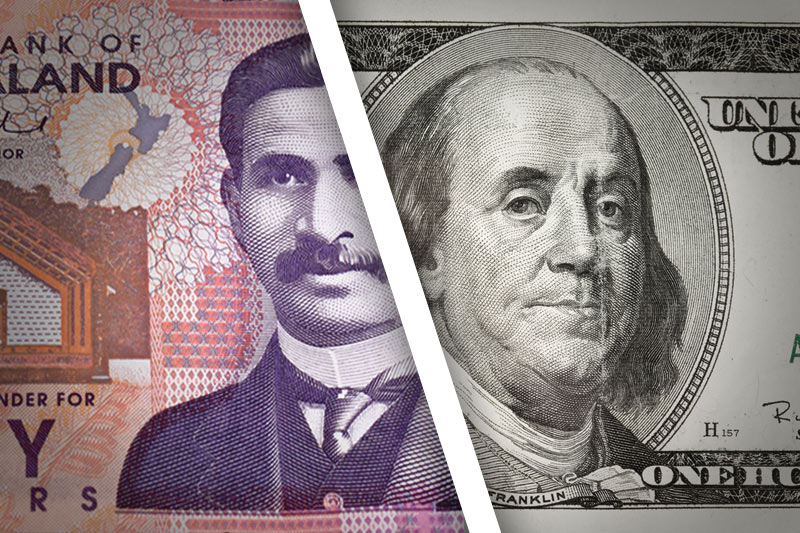Investing.com’s stocks of the week
Investing.com - The New Zealand dollar traded lower against its U.S. rival during Monday’s Asian session as traders stepped back from the riskier kiwi amid the ongoing U.S. government shutdown.
In Asian trading Monday, NZD/USD dropped 0.22% to 0.8303. The pair is likely to find support at 0.8194, the low from October 2 and resistance at 0.8360, the high from September 24. Despite limited demand for some riskier currencies, NZD/USD advanced 0.45%. last week.
The U.S. government is in the midst of its first shutdown in 17 years and with the political environment in Washington, D.C. growing more contentious, traders are stepping away from some riskier currencies while searching for safe-haven alternatives to the greenback, putting the kiwi in a precarious spot in the process.
Markets were also mulling over how the political deadlock in Washington will impact on negotiations to raise the U.S. debt ceiling, which the U.S. Treasury Department has estimated will be reached by October 17.
Should the shutdown stretch into the debt ceiling deadline, the U.S. risks its first ever default on its sovereign debt obligations. Last week, Bank of Japan Governor Haruhiko Kuroda warned that the U.S. budget deadlock and fears over the threat of a possible U.S. default could destabilize financial markets.
U.S. Treasury Secretary Jacob J. Lew warned that the U.S. Congress is "playing with fire" when it comes to not extending the debt ceiling. Markets tumbled last year during a heated debt ceiling debate.
Elsewhere, NZD/JPY fell 0.53% to 80.67 as traders bid up the yen on safe-haven demand. AUD/NZD rose 0.22% to 1.1362. Markets are closed in Australia today for a public holiday.
In Asian trading Monday, NZD/USD dropped 0.22% to 0.8303. The pair is likely to find support at 0.8194, the low from October 2 and resistance at 0.8360, the high from September 24. Despite limited demand for some riskier currencies, NZD/USD advanced 0.45%. last week.
The U.S. government is in the midst of its first shutdown in 17 years and with the political environment in Washington, D.C. growing more contentious, traders are stepping away from some riskier currencies while searching for safe-haven alternatives to the greenback, putting the kiwi in a precarious spot in the process.
Markets were also mulling over how the political deadlock in Washington will impact on negotiations to raise the U.S. debt ceiling, which the U.S. Treasury Department has estimated will be reached by October 17.
Should the shutdown stretch into the debt ceiling deadline, the U.S. risks its first ever default on its sovereign debt obligations. Last week, Bank of Japan Governor Haruhiko Kuroda warned that the U.S. budget deadlock and fears over the threat of a possible U.S. default could destabilize financial markets.
U.S. Treasury Secretary Jacob J. Lew warned that the U.S. Congress is "playing with fire" when it comes to not extending the debt ceiling. Markets tumbled last year during a heated debt ceiling debate.
Elsewhere, NZD/JPY fell 0.53% to 80.67 as traders bid up the yen on safe-haven demand. AUD/NZD rose 0.22% to 1.1362. Markets are closed in Australia today for a public holiday.
